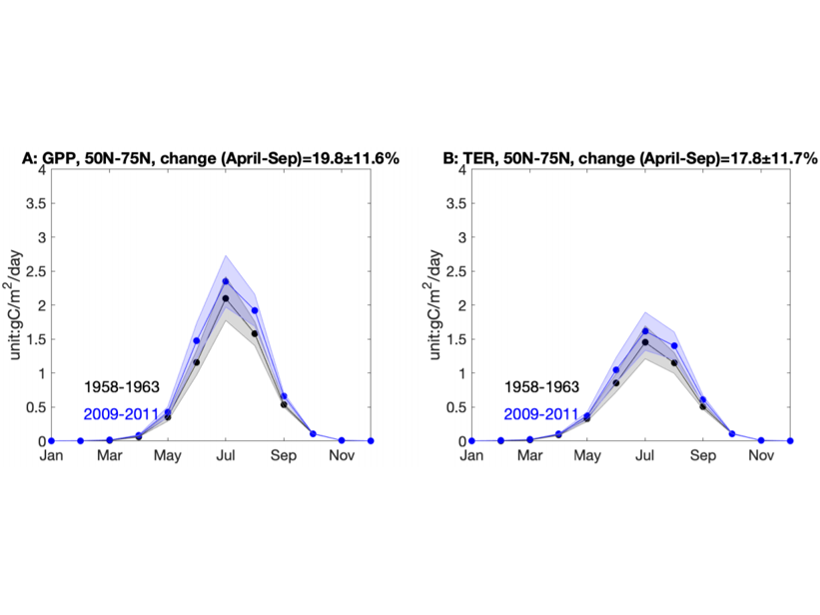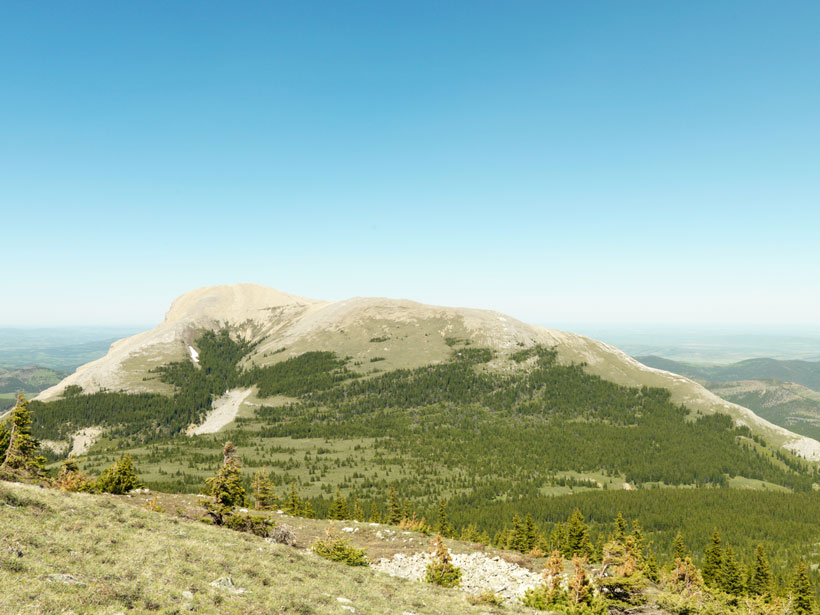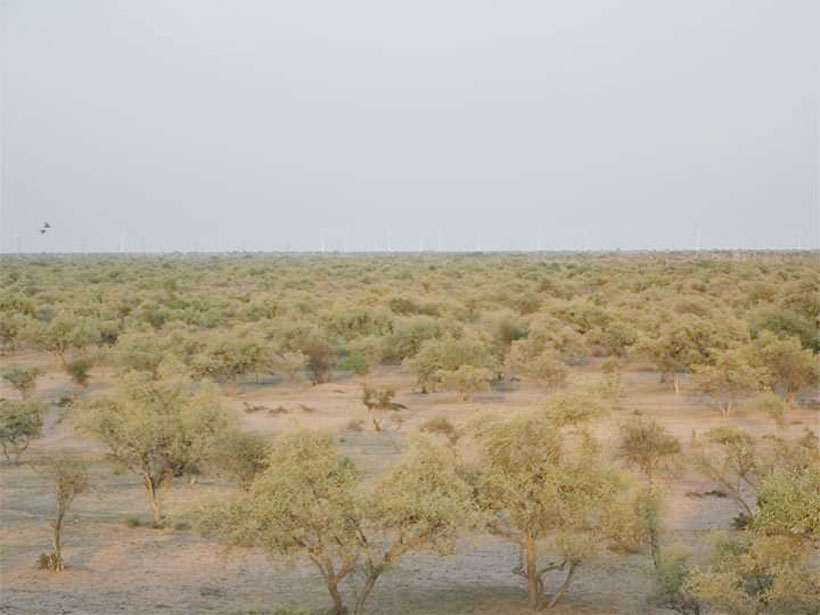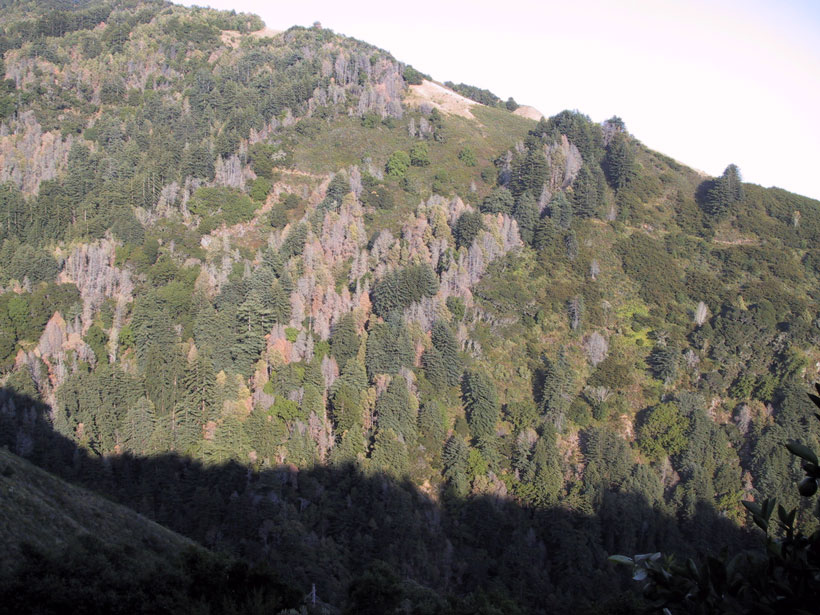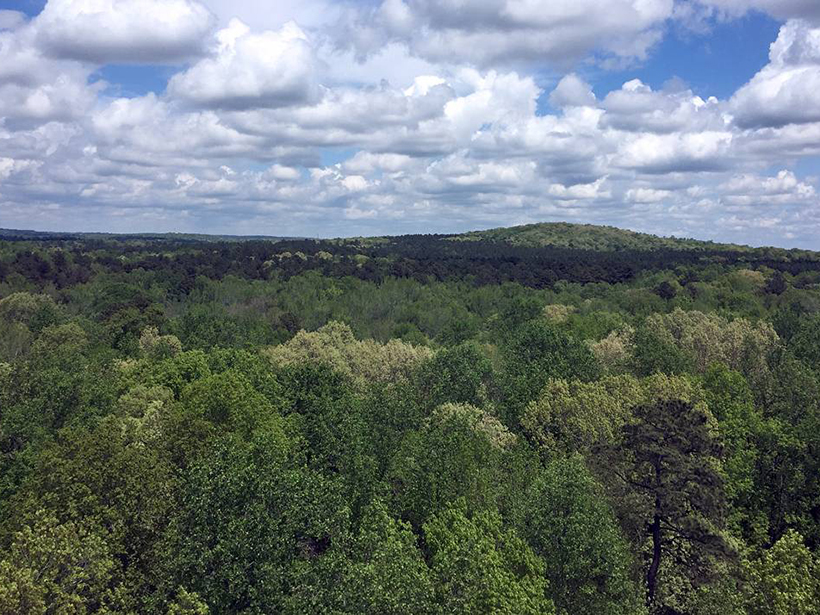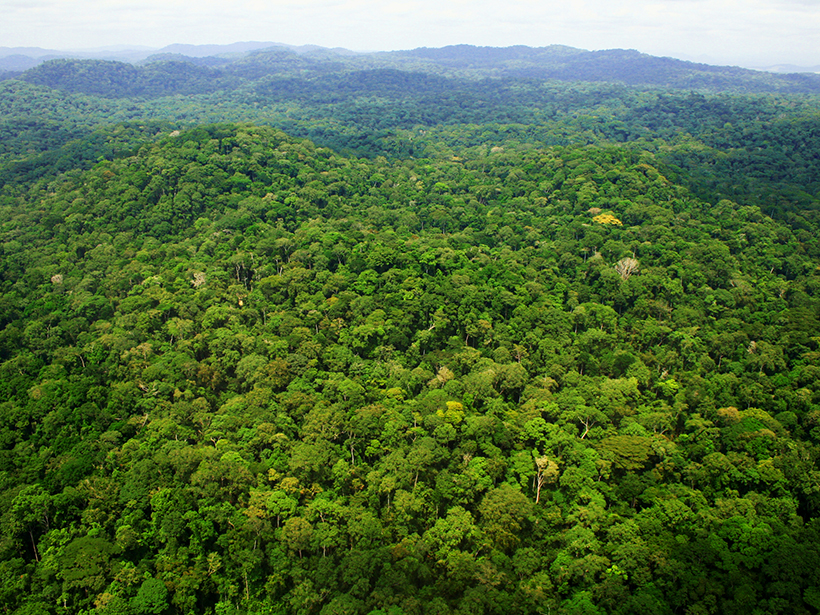Living near a forest edge may be an important risk factor for Lyme disease; these liminal spaces provide the perfect habitat for one of the black-legged tick’s favorite hosts.
forests
High Climatic Response of High-Latitude Forests
The seasonal amplitude of atmospheric CO2 is increasing, partly due to boreal forest responses to warming. Photosynthesis and expansion of boreal forests are shown here to be temperature-limited.
Acidifying Oceans Could Get Help from Kelp
Forests of fast-growing kelp influence the chemistry of the water in which they live. A new study evaluates their potential to ameliorate ocean acidification in sensitive coastal ecosystems.
Restored Tropical Forests Recover Faster Than Those Left Alone
The costs of active restoration may be offset by aggressive carbon pricing demanded by the Paris Agreement.
Canada’s Rocky Mountain Forests Are on the Move
Using century-old surveying photos, scientists have mapped 100 years of change in the Canadian Rockies to document the climate-altered landscape.
Solar Mandates in Sacred Groves
As India moves toward ambitious climate goals, it is trampling on sacred groves in desert ecosystems.
Sudden Oak Death Taking a Toll on U.S. West Coast
Researchers have been modeling effects of the plant pathogen Phytophthora ramorum on coastal forests in California and Oregon since it arrived on the West Coast 3 decades ago.
Hardwood Forest Soils Are Sinks for Plant-Produced Volatiles
New research identifies temperature, moisture, and soil fungi as important factors in influencing how biogenic volatile organic compounds cycle between plants and the atmosphere.
Reforestation as a Local Cooling Mechanism
Reforestation has been shown to cool surface temperatures, and a novel study suggests it may also reduce air temperature up to several stories above the ground.
Tropical Forests Are Losing Their Ability to Soak Up Carbon
The forests could switch from a carbon sink to a carbon source by the mid-2030s.


